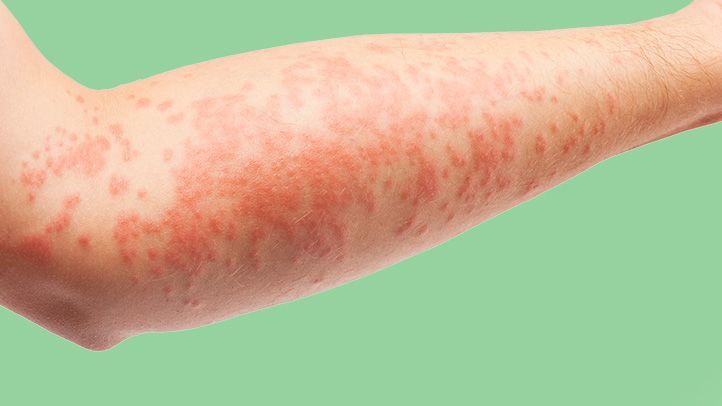If you live with eczema, you know what it’s like to search for relief from red, itchy skin. You’ve probably already tried a variety of products. Unfortunately, some items can leave your skin feeling drier and even more irritated.
Don’t give up hope yet! In addition to medications, there are many options you can try at home to help with your symptoms. The eight natural remedies listed below may help replenish moisture and protect your skin’s natural barrier.
If you’re taking prescription medications for your eczema, it’s a good idea to check with your doctor before trying new home remedies.
Colloidal oatmeal
Colloidal oatmeal is made from finely-ground oats. It helps calm and soften inflamed skin. Colloidal oatmeal is available in cream or powder form.
Here’s how to use it:
Add the powder to lukewarm bathwater and soak for 10 to 15 minutes to help soften rough skin and relieve itching.
After your bath, pat your skin dry and apply a thick layer of hypoallergenic moisturizer that has a high oil content.
Evening primrose oil
Evening primrose oil comes from the evening primrose plant. It’s used topically to soothe irritated skin.
When taken by mouth, it’s used to treat systemic inflammatory conditions such as eczema. Evening primrose oil contains omega-6 fatty acids and gamma-linolenic acid, which may play a role in preventing inflammation in the body.
An older study shows results on evening primrose oil for eczema are mixed. Even so, many people claim it helps reduce their eczema symptoms without negative side effects.
Coconut oil
Coconut oil is extracted from coconut meat. It may be used as a natural moisturizer.
According to the National Eczema Association, the antibacterial abilities of coconut oil can reduce staph bacteria on the skin, which helps prevent infection. This is important for people with eczema because patches of inflamed skin may crack and ooze, allowing bacteria to enter.
When applying it to your skin, choose virgin or cold-pressed coconut oil that’s processed without chemicals.
Sunflower oil
Sunflower oil is extracted from sunflower seeds. ResearchTrusted Source has shown it protects the skin’s outer layer, which helps keep moisture in and bacteria out. Sunflower oil also hydrates skin and may relieve itching and inflammation.
Sunflower oil may be applied, undiluted, directly to the skin, preferably after bathing while the skin is still damp.
Witch hazel
Witch hazel is an astringent made from the bark and leaves of the witch hazel shrub. It has been used for centuries as a topical remedy for skin inflammation. Yet, research on witch hazel for eczema is scarce.
Still, the remedy is often applied to calm inflamed skin, dry-up oozing areas, and relieve itching.
Calendula cream
Calendula cream is an herbal remedy. Calendula has been used for centuries as a folk remedy to heal skin inflammation, burns, and cuts.
It’s thought to improve blood flow to areas of injury or inflammation, help hydrate skin, and help fight infection.
Research is lacking on the effectiveness of calendula for eczema. But, people claim it helps.
Acupuncture and acupressure
The practice of acupuncture uses fine needles inserted at specific points in the body to alter the flow of energy. Although more research is needed, some findingsTrusted Source believe that acupuncture may bring itch relief.
Acupressure is similar to acupuncture, except it uses the fingers and hands to apply pressure instead of needles. Preliminary researchTrusted Source has shown acupressure might relieve eczema-related itchy skin.
Source: www.healthline.com









